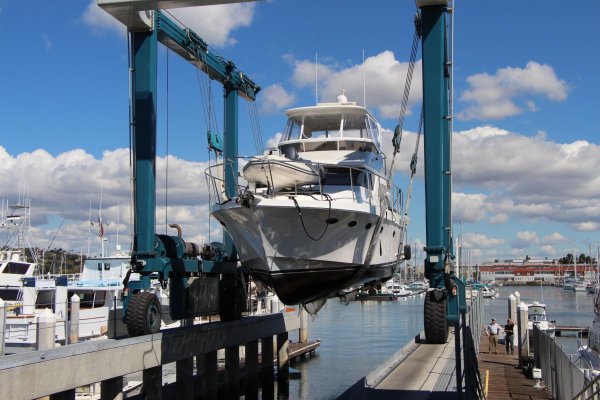Assuming a modest 35-45 foot boat that does not require a multi-day survey, here are some general guidelines I like to follow (see attached checklist/template as a starting point):
1. Sea Trial is a work-day, not a social day. Don't invite friends unless they are there as your consultant.
2. A checklist like the attached is a good way to work your way through the systems. I'm sure others will chime-in with improvements.
3. Sea Trial should not be a simple trip to the yard for a haul, which is what the broker will suggest. I personally like to keep them separate.
4. The seller/broker should provide a captain to drive the boat. I personally do not touch the helm at all during a sea trial, though I will ask the helmsman to demonstrate the boat completely - docking, figure eights, backing-down, etc.
5. I do suggest having a mechanic aboard. They will instruct the helmsman to run-up the engines to WOT and take heat measurements. If there is reluctance to run-up to WOT, there's a problem. If it's a planing boat and can't get up on plane easily, there's a problem. Could be a really dirty bottom. If so, reject the boat and redo the sea trial after its been cleaned.
6. Do NOT ignore electronics. Really need to make sure all the sub-systems are properly interfaced (A/P talks with chart plotter, radar overlay shows correctly on chart, radar is oriented correctly, engine controls display correctly, correct version of firmware, etc. ). Folks who diagnose and fix problems with electronics are expensive, and troubleshooting can take a while. If this is an expensive boat, you may want to buy a few hours of time from an electronics expert knowledgeable in the installed systems.
7. Out of water Survey. for 40-ish foot boats, surveyors can usually do the out-of-water sork in an hour or so. If so, try for a "Noon Hang" where the boat is hung in the travelift slings for an hour while the yard crew is at lunch. It's less expensive than blocking, and keeps the broker from talking you into making a quick purchase decision "Might as well get her painted while she's in the yard...." Survey is a sunk-cost. Get her back in the water as quickly as reasonable.
8. Do not miss the survey. This is your time with the surveyor. If the owner or the broker shows up, be cordial, but ask them to leave. There are things the surveyor may tell you verbally that he/she cannot put in writing. While I'm at it, I've always looked for NAMS surveyors, with SAMS being a second choice.
9. Survey Credits - Do not be a jerk. Depending on the age of the boat and how it was represented, it will usually have issues and you'll have to decide what's a fair resolution. Asking for a brand new thruster on a 20-year old boat isn't fair (unless it was represented as new).
Overall, you will do better with a friendly approach than trying to be hard-nosed. People who own boats have an emotional attachment to them - telling them their baby is ugly usually isn't the best way to getting the best deal unless they're super desperate.
Good luck!
View attachment SeaSkills Sea Trial Template 1[1].0.pdf


